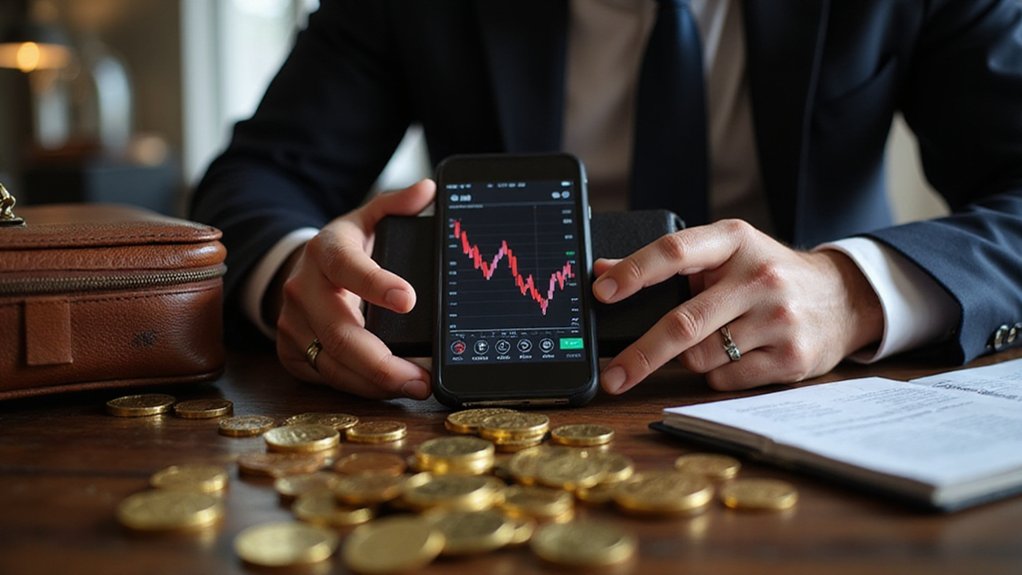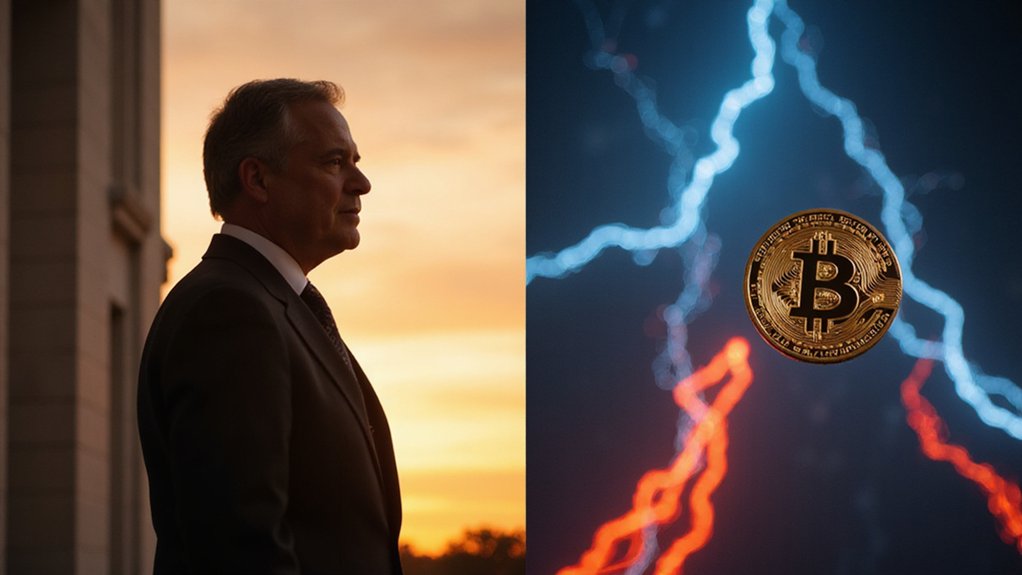While the Trump family’s relationship with cryptocurrency began with characteristic skepticism—Donald Trump once dismissed Bitcoin as a “scam based on thin air”—Eric Trump’s emergence as a self-proclaimed “bitcoin maxi” represents perhaps the most dramatic financial pivot in recent political memory.
His transformation from crypto-curious observer to industry titan culminated in March 2025 with the founding of American Bitcoin Corp., which promptly merged with Gryphon Digital Mining, positioning him to receive 367 million shares valued near $367 million.
Eric Trump’s meteoric rise from crypto skeptic to $367 million industry heavyweight exemplifies calculated financial opportunism disguised as ideological transformation.
This strategic maneuver reflects more than mere opportunism; it represents a calculated response to what the Trump family characterizes as systemic “debanking” during the first presidential term. Traditional financial institutions’ alleged weaponization of banking services against Trump-affiliated entities catalyzed their migration toward decentralized alternatives—a narrative Eric Trump weaponizes with remarkable effectiveness in crypto advocacy circles.
American Bitcoin’s ambitious expansion strategy mirrors MicroStrategy’s treasury management playbook, targeting acquisitions in Japan and Hong Kong while accumulating bitcoin through both mining operations and direct purchases.
The company’s rebranding from American Data Centers signals serious institutional commitment, absorbing mining infrastructure to enhance production efficiency while positioning itself as the most thorough bitcoin accumulation platform in the market.
Eric Trump’s bullish price predictions—$175,000 by 2025, with long-term targets reaching $1 million per bitcoin—coincide suspiciously well with his family’s expanding crypto holdings.
Trump Media & Technology Group raised over $2 billion in Q2 2025 for bitcoin treasury establishment, while President Trump disclosed $57 million in income from World Liberty Financial, launched in 2024 with associates sporting literal brand loyalty tattoos. The venture’s USD1 stablecoin achieved rapid growth, reaching a market capitalization of $2.2 billion within months of its launch.
The ethical implications of presidential influence intersecting with family crypto ventures barely register in Eric Trump’s public positioning.
Instead, he frames their digital asset strategy as financial liberation from institutional gatekeeping—a defiant instrument against big bank control that resonates powerfully with crypto’s anti-establishment ethos. This anti-establishment sentiment has only intensified following innovations like Erebor Bank’s disruption of traditional banking in the aftermath of the SVB collapse.
Whether this represents genuine ideological conversion or sophisticated opportunism matters less than its effectiveness.
The Trump family’s crypto transformation demonstrates how political grievance, when channeled through blockchain technology, can generate both substantial wealth and compelling narrative—a combination that traditional banking never anticipated facing from such an unexpected adversary.








